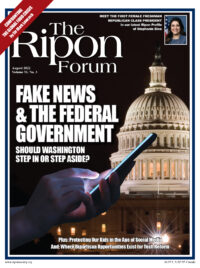
As spring turned to summer this year, Europe’s leaders were undergoing a significant mind shift. Their longstanding concerns over internal wrangling in the European Union were replaced by fears over Europeans’ increased vulnerability to external threats.
Europeans are worried, of course, about Russia’s ability to do them harm. But they are also unsure of America. Decades of unquestioning reliance on U.S. cooperation and support are giving way to doubt and suspicion.
Transatlantic relations are nothing if not resilient, but they now require careful nursing. Russia’s war in Ukraine is transforming Europe’s neglect of energy and defense policies into a dangerous wedge dividing the United States from the European Union.
Europe has — understandably, but also unforgivably — been sleepwalking towards disaster in both of these areas. Its priorities have been the complex economic and political integration of so many different cultures. “A horse and rabbit stew” is how the EU was sometimes described, even before the Berlin Wall fell and its ‘Big Bang’ enlargement to almost 30 members made it more heterogeneous still.
Russia’s war in Ukraine is transforming Europe’s neglect of energy and defense policies into a dangerous wedge dividing the United States from the European Union.
Europe’s awakening has been shocking and sudden. “How could we,” ask politicians and business leaders,”have allowed ourselves to depend for energy on an unreliable Russia led by a hostile Vladimir Putin?” As they scramble to design emergency oil and gas strategies, Europeans also cast envious looks across the Atlantic.
“Could America’s commitment to NATO’s collective security extend to energy?” ask some politicians. With major U.S. oil and gas companies like ExxonMobil “making more money than God,” as President Joe Biden reportedly put it, and with winter looming, these politicians wonder if transatlantic solidarity might somehow come to Europe’s rescue.
In the face of irresistible energy market forces, it is hard to see how this will occur. As Europeans shiver and see their industries collapse, the reality will be that they will also be treated to the spectacle of near-normality across the pond in America. The fact that Europeans’ otherwise admirable environmental policies have compounded their energy problems won’t diminish their resentment.
The widening transatlantic “energy gap” will need delicate handling in Washington and Brussels. Relatively cosseted societies in the EU and U.S. have scarcely given a thought to energy other than over climate change, But that’s about to change. It is going to vex EU cohesion, but also Europe’s links with the U.S.
There will, though, be the countervailing force of mutual security in response to Putin’s aggression. It may be that the need to show strength through unity within NATO will compensate for tensions over energy and other economic issues dividing the U.S. and EU. But it is a hugely unbalanced relationship, with Europe’s defense shortcomings a constant U.S. irritation.
“Ukraine fatigue” could, meanwhile, spread in Europe if Putin were to unblock grain exports and slow his army’s advance in the Donbas region. The arrival of millions of fleeing Ukrainians is already giving rise to discontent. Germany, threatened by recession and its first trade deficit in living memory, has identified the arrival of 700,000 refugees from Ukraine as a factor in its rising unemployment levels.
It may be that the need to show strength through unity within NATO will compensate for tensions over energy and other economic issues dividing the U.S. and EU.
Eight million newcomers whose length of stay cannot be determined are weighing heavily on social security and housing arrangements across Europe, and in Poland most of all. Warm-hearted initial responses are cooling now that the influx is twice that of initial estimates. Despite valiant efforts by UN agencies and the EU, burden-sharing tensions are beginning to sour intra-European relations.
No one can say how effectively Europeans will handle Putin’s long-term threat to their security. The upbeat talk in Madrid at NATO’s annual summit could not disguise the years of penny-pinching on defense. By way of contrast, the U.S. has almost doubled to 100,000 its troop levels in Europe, and now accounts for two-thirds of the forces along NATO’s eastern flank.
This uncomfortable reliance on U.S. military power is complicated by lingering doubts in Europe as to America’s reliability. President Donald J. Trump’s cavalier attitude to the alliance — indeed, his implicit suggestion the U.S. should withdraw from it — is not forgotten. The possibility that some future U.S. administration might tear up the hitherto sacrosanct Washington Treaty lurks at the back of many Europeans’ minds.
There will certainly be a drive on defense spending within Europe, but there can be no quick fix. Germany’s epoch-changing pledge to abandon its pacifist leanings and spend €100 billion on its armed services is important, but will probably take 20 years to bear fruit. The same goes for all except France and Britain.
The bottom line on the challenges now facing Europe is that they demand a degree of sympathy and support from the United States that has not lately been much in evidence. American public opinion has become more isolationist, yet the deepening global contest between democracies and autocracies clearly points to where U.S. self-interest lies.
Giles Merritt has reported and commented from Brussels on European affairs since 1978, first as a Financial Times staff correspondent and then as an Op-Ed contributor to the International Herald Tribune. He is the founder of the prominent EU policies think tank Friends of Europe and author of the ‘Slippery Slope: Europe’s Troubled Future’ (Oxford University Press 2016).




